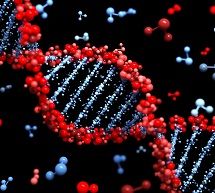Blood Test May Be Able to Predict Breast Cancer
Researchers from the University of Massachusetts Amherst will investigate if a blood test can predict breast cancer.

White blood cell (WBC) DNA methylation change may predict the future likelihood of breast cancer, and is being investigated as a possible early warning blood test.
Researchers from the University of Massachusetts Amherst received a 2 year, $760,462 National Cancer Institute award in order to validate the potential detection method. The investigators, lead by epidemiologist Susan Sturgeon, DrPH, MPH of the School of Public Health and Health Sciences, plain to use data and blood samples from the Prostate, Lung, Colorectal, Ovarian (PLCO) Screening Trial in order to assess their hypothesis in order to identify women at higher risk and develop new prevention strategies. The researchers plan to use a method of sequencing bisulfite modified DNA for the examination of the top 5 cytosine phosphate guanine (CpG) sites because of the high accuracy, sensitivity, and precision the method offers.
The research team also includes Kathleen Arcaro, PhD, an environmental toxicologist, David Sela, PhD, a genomic biologist, and Raji Balasubramanian, ScD, a biostatistician.
“I think the award demonstrates the value of collaborative research at UMass Amherst,” said Arcaro, who is a cancer research and methylation specialist. “Working together as a team, we can enhance the epidemiologic work and bring a new dimension to cancer research. This sort of cooperation represents the most promising way forward in investigating new prevention and risk assessment strategies for breast cancer.”
The researchers believe the WBC DNA methylation is a viable potential target for early breast cancer diagnosis because contribution the process makes to tumor growth. Methylation occurs in the DNA at CpG sites, which are associated with the promotion and suppression of gene expression. By monitoring the methylation status of some genes, the researchers believe they can detect biomarkers for tumor growth.
“This study has the potential to reduce mortality by leading to the development of a risk assessment tool for breast cancer,” added Sturgeon. “Characterization of a WBC DNA breast cancer-related risk profile could help in better targeting of risk-reduction strategies of high risk women and could lead to the development of novel prevention strategies.”
Prior research from the National Institutes of Environmental Health Sister Study determined a panel of 5 differently methylated CpGs between breast cancer patients and controls subjects using WBC DNA and a genomic sampling of 27,578 CpG sites.
“We will further extend the findings of the Sister Study by capitalizing on serial bloods available in PLCO to robustly investigate the association in 2 different time intervals between WBC DNA collection and diagnosis,” the researchers collectively explained, while noting the time periods are from 1 to 2, and 4 to 7 years. “This analysis will provide the information necessary to distinguish whether WBC DNA methylation changes are a response to preclinical breast cancer and further clarify the lead time, and/or if they predict the future likelihood of breast cancer.”